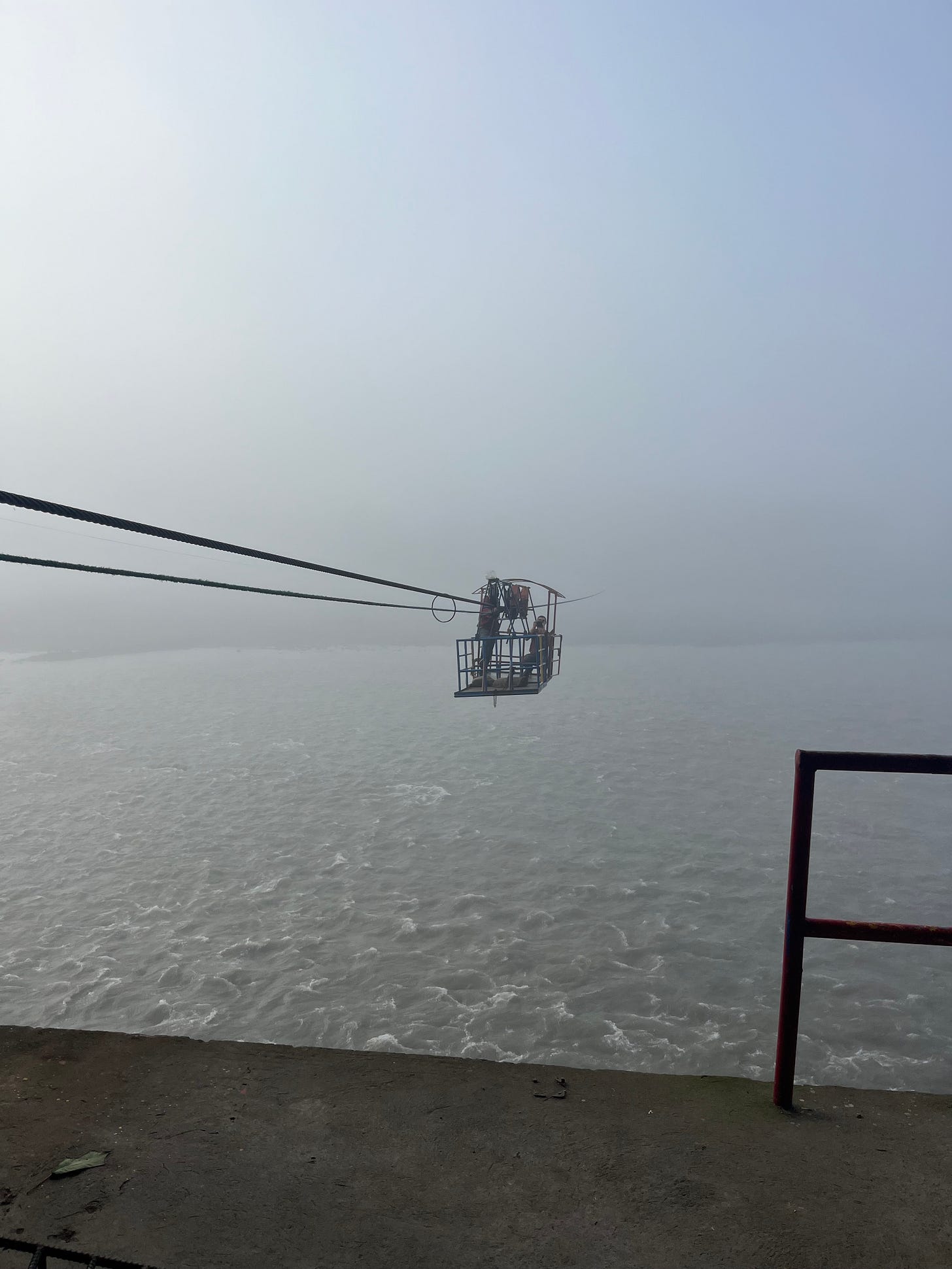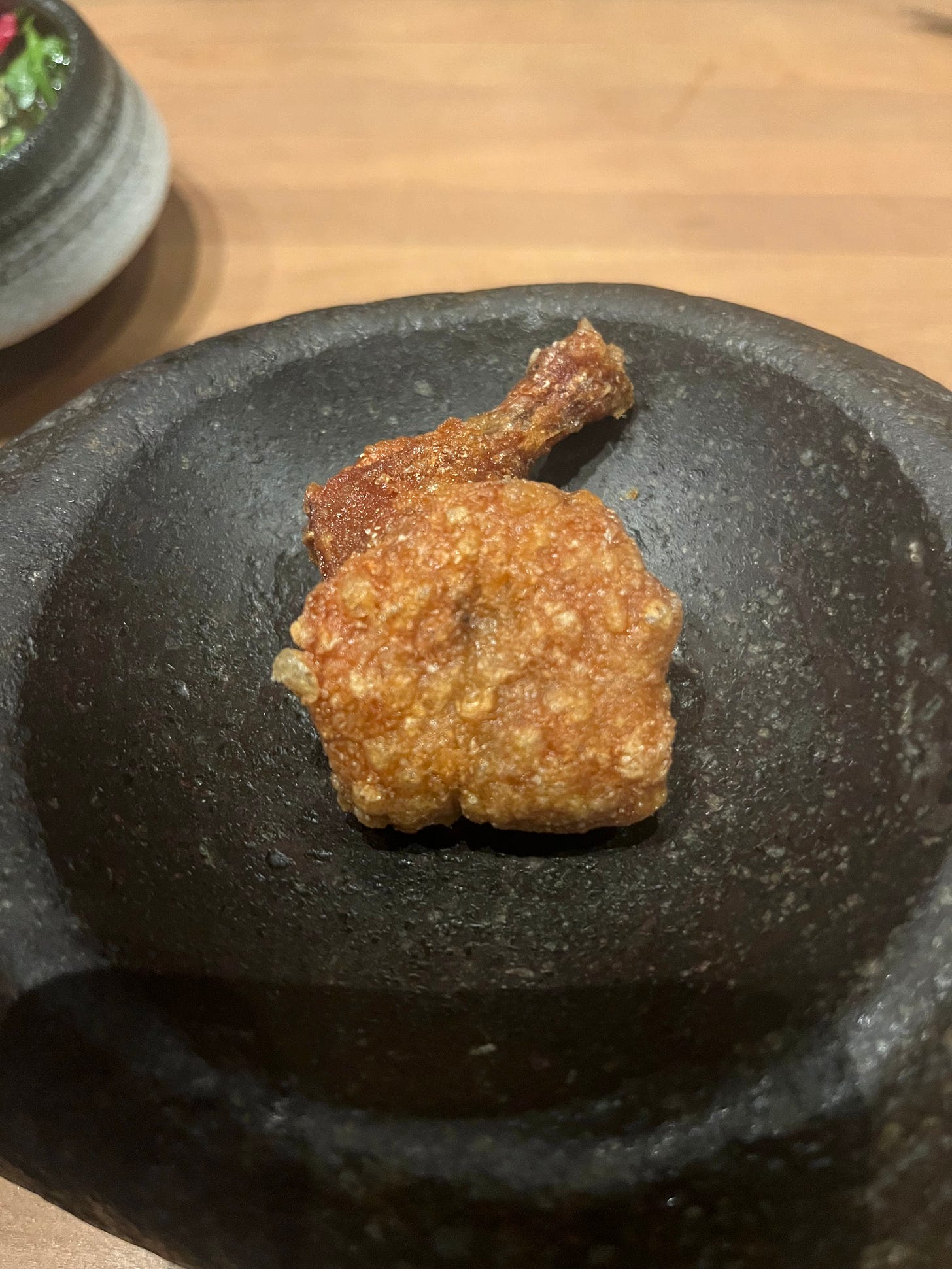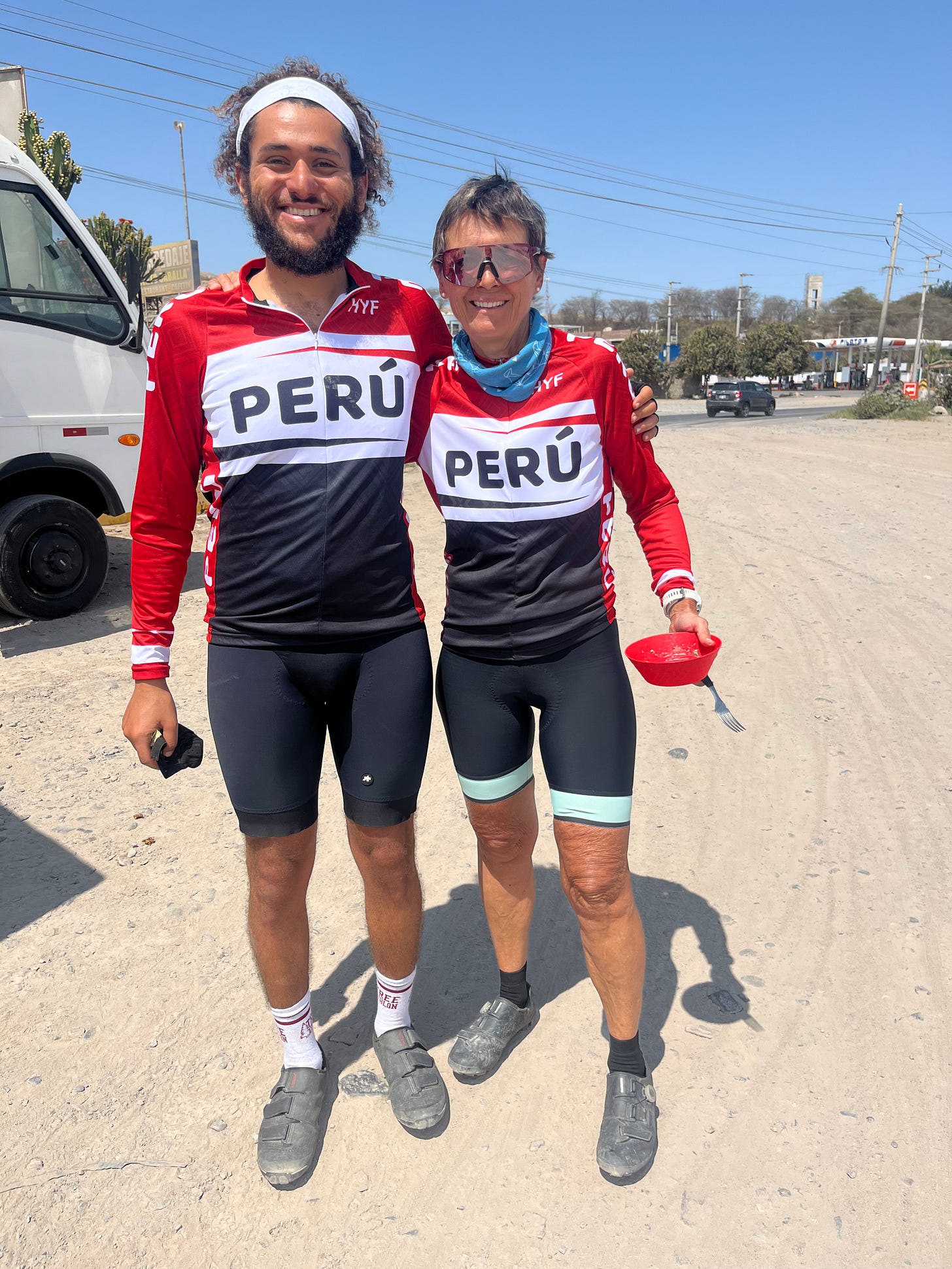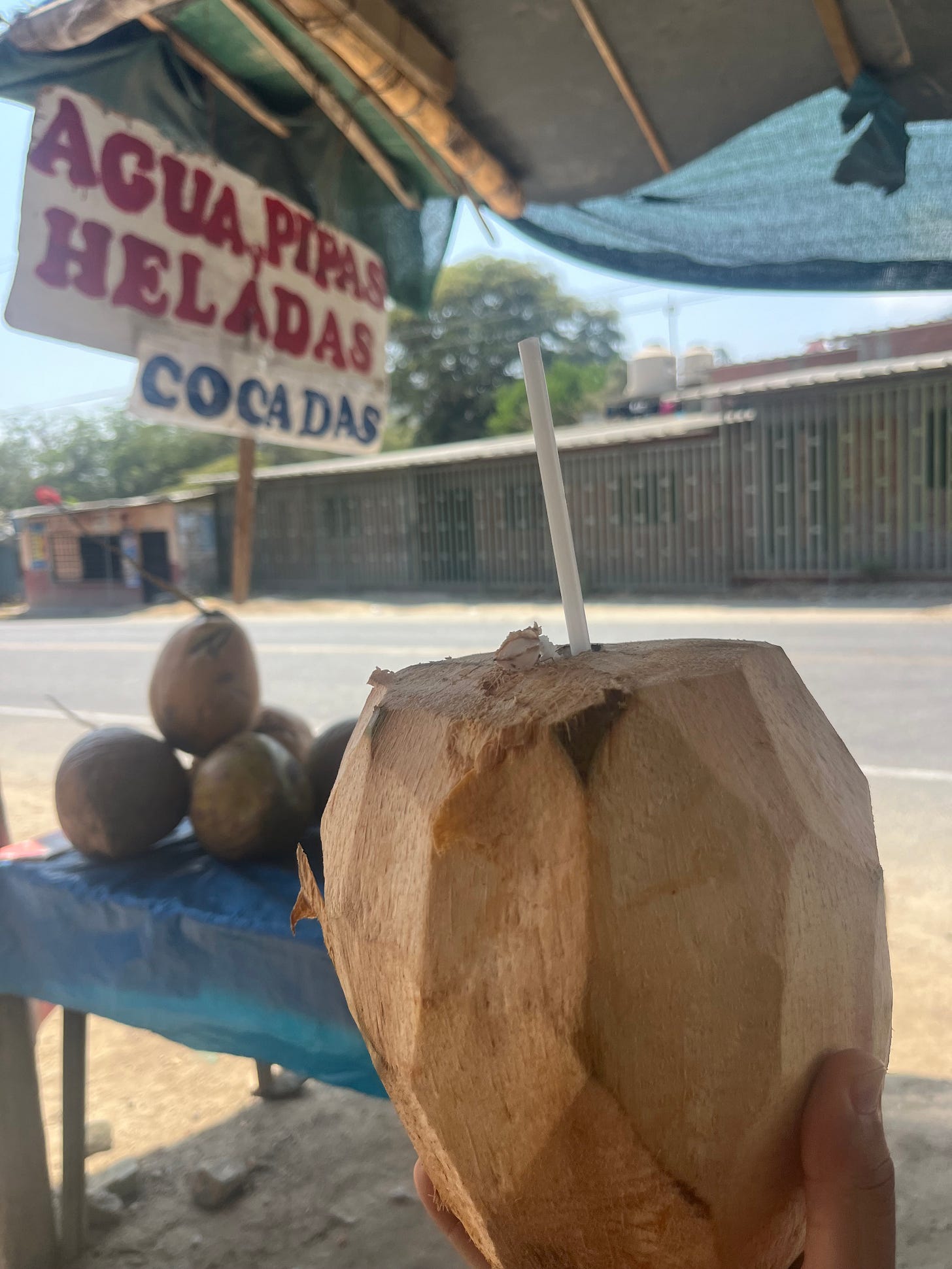Andes, Amazon, Coast
03.01 | Lima
And so we crossed the Ecuadorean Andes region, into its Amazonian region for a few riding days in the jungle, before descending to the flat Peruvian coast.
One of the most memorable days in the jungle involved a cable car crossing over a rushing river below. We arrived at our cable car stop at 7 am, and the operators must have not been up yet, and looked surprised to wake up to a caravan of some 30 eager cyclist rolling in, curiously trying to find the end of the cable obscured by the thick fog.
We board the cable car two by two, and zip across, the other side slowly coming into view over the river.
We bid farewell to Ecuador, and to the climbs (for a few days) and the jungle, and cross to Peru, where we meet a few flatter days on the coast that come with their own challenge: fierce headwinds.
“I’ll take a climb any day over this brutal headwind” says one of the riders on one of our roadside refueling stops.
Our first few days in northern Peru were challenging and unremarkable. We battled heavy winds, mostly back on the pan-Americana highway, with few turns, climbs or descents, and the monotony of the road, the heaps of garbage on the side, and the gray skies made it difficult for me to stay motivated at times.
“The garbage here is so demoralizing…Why can’t we just look after ourselves?” Asks Brenda (retired doctor from British Columbia)
The difference from Ecuador to Peru in terms of garbage on the side of the roads was startling. Ecuador, I learned later, recognizes Nature as a subject of law, and (to the best of my knowledge) is the first, and to date the only, country to recognize and protect the rights of Nature at the constitutional level.
On one of our riding days in northern Peru, I met another cyclist on the side of the road, which although was common in Colombia and Ecuador has been a rarity in Peru - where it feels like some of the drivers actively resist the idea of sharing the road with some lowly cyclists.
Michael and I start off our conversation in Spanish before realizing that we can switch to English, as he tells me about his own cycling adventure from Oregon to Northern Peru, his orange sleeping mat (like mine!) flapping on the back of his bike.
“People everywhere are the same” he says…They’re nice.”
We catch up later for dinner, and discuss how northern Peru has been our least favorite compared to Colombia and Ecuador. Fortunately, a few days later, the route starts to get much more interesting.
“It must be tough to be away from home for so long?” I ask him, and he shares how he cycles 6-8 weeks at a time, then goes back home, before coming back to do another stretch.
“What about your wife and kids and grandkids?” I ask.
“My marriage is easy.” He says, “And it makes everything else in my life easy.”
His words remind me of a prior conversation I had with Mike over some beers, on what’s important in life.
“My family is my crowning achievement.” Mike had said.
I hope one day I can also be a grandparent like them and say the same things.
As we get closer to Lima, the ceviche gets better and better, and as the landscape starts to shift, we encounter some of the most beautiful days in the desert followed by the most spectacular remote camp sites.
Throughout our voyage to Lima, we’ve found ourselves on many “false flats”, or stretches on the road that look flat but have a small slope. Similarly, many downhills that force you to peddle much harder through a headwind. Something about the mismatch between expectations and reality during these stretches makes them feel a lot more difficult. Maybe it’s best to avoid expecting any easy days?
As we pass in and out of small towns, we develop a new game among ourselves trying to finding a tok tok or a truck that’s going slow enough for us follow and pickup some speed for a few minutes.
Sheltering behind one another can make a huge difference, and I found myself behind Mike’s rear wheel for a few long stretches towards Lima.
“I find it a lot more fulfilling to help others finish the ride, rather than ride for myself” Mike says one of the days he pulled along a long line of riders.
One of the questions that’s been lingering as I’ve peddling, like a puzzle that’s in progress is: what does a fully lived life look like?
And it’s clear this may be different for everyone, but one of the corner puzzle pieces I’ve found is having a posture that is like Mike’s - devoted to helping others on their ride.
Generosity. Giving.
“How is the journey going for you so far?” I ask Jess, our medic - who has the deepest most infectious laugh on our tour.
“Everyday I feel so present…It’s like this sense of flow everyday… At home I feel like I’m a bird in a cage.” She says.
How can I cultivate this sense of flow and presence everyday, especially through these false flats on the road? I think to myself as my mind swings from the past to the future like a pendulum.
“Your mind will take on the character of your most frequent thoughts” writes Marcus Aurelius.
Another day at lunch, Jess asks how my day’s going. “Not too bad.” I reply, having not found much sense of flow in my first few hours of the day. “Yours?” I ask.
“It’s a great day! To have a GREAT day!” She whips back.
I can’t help but smile. This should be one of my most frequent thoughts…
The fog driving into Lima was unbelievable.
I took a taxi a day earlier than the group, because I was fortunate to have my parents come down and we celebrated my dad’s birthday - (although a bit early but happy birthday, dad!)
Lima to me, had the closest resemblance to Cairo so far (especially due to the traffic), and of the cities I’ve been lucky to visit, it’s up there with Tokyo for having the most incredible food. And was where we finally tried a little cuy — or Guinea pig — and it was pretty tasty. I thought it tasted like quail.
On separate occasions, I ask both Michael and Mike, given both are grandparents, what advice they’d have to their grandchildren:
“To be fair, kind, caring”
“Not to worry”
“Open yourself to something great, rather than worrying if everything is optimal all the time.”
“Get going, but know when enough is enough.”
Next up: Cusco —> Bolivia











